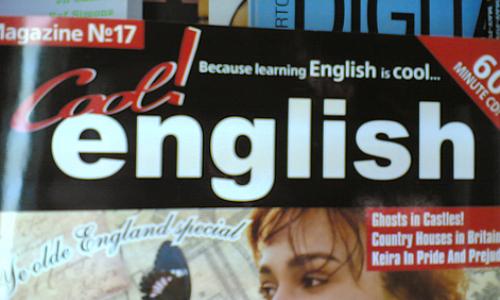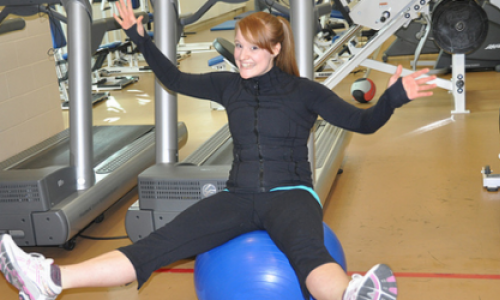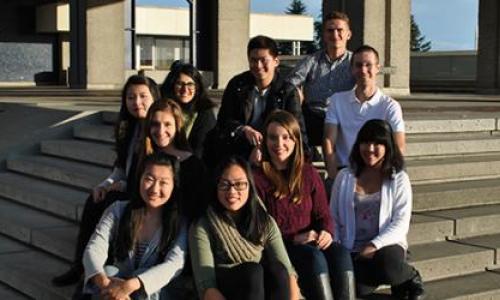
An effective resume will show potential employers that you have the skills and talents they are looking for, the experiences and accomplishments to back up those claims, and personal qualities that will be an asset to the organization. How do you communicate these things in your resume? Well, you may want to start off by making sure that you have all the standard sections employers look for on a resume.
Our Career Advisors and Career Peers at SFU Career Services have prepared a useful and informative guide to resume basics, and here is what they have found to be the most common sections people have included in their resumes that prospective employers look at. It's not absolutely necessary to have these sections on your resume exactly in the order we have laid them out here, but consider what information you would include for each.
Your Contact Information
Yes! Your contact information! This includes your full name, address, phone number, professional email address, and e-portfolio or professional website if you've got one. Generally, you would not include information such as your age, gender, birth date, religious organizations you are affiliated with or photos of yourself.
You will want your contact information to be easily visible for the employer but if your resume is more than one page long, it's a good idea to include at least your name, phone number or email on the second page as well along with a notation such as "page 2 of 2" in a header or footer on the page.
Career Objectives: To Include or Not to Include?
In many cases, the jury is still out on whether or not to include an objective on your resume. For some, it's necessary and they feel their resume is not complete without it. For others, they prefer not to include one.
If you do decide that including a Career Objective will add value to your resume, ensure it is a clear, concise and targeted career objective that will show employers how you can contribute to their organization. Simply saying that your objective is to "gain experience with your organization" or "gain full-time employment" is probably not the best use of the limited space on your resume. Your Career Objective or Objectives should be backed up by the information in your resume that highlights the skills and qualities that they are looking for.
Your Education
In this section, you will want to include the degrees, diplomas and relevant certificates you have received or are working towards. Depending on what types of work or volunteer experience you pursued (or are pursuing) while in school, you may want to use some space in this section to expand upon what you learned in some relevant classes.
Instead of listing off class numbers (i.e. achieved an A- in BUEC 433), which may not mean much to someone who never attended SFU or who is not intimately familiar with the class content, instead think about what skills you acquired in that class and how they could be applied to the position you are targeting.
Some employers are pretty explicit about what qualifications or classes they require an applicant to have before being considered for a position at their organization. If you've completed the class numbers or accreditations they indicate, by all means, include them in this section or consider creating a separate section for your certificates, accreditations or other qualifications you've completed.
Your Experience
Hands-on experiences and projects are added bonuses because they demonstrate your knowledge in practice! Include your work experience and volunteer work that highlights the relevant skills and qualities that could make you the stand-out candidate for the position you are applying for.
When writing about your work and volunteer experiences, try to paint the picture for the employer by framing your experiences in the context of an accomplishment statement. Co-op Coordinator Marcia Shimizu provides a good example of an accomplishment statement in the article "Is Your Resume Outstanding?".
An easy way to think about writing your accomplishment statements is to use the STAR technique. STAR stands for Situation, Task, Action, Result. Steve Rodgman expands upon using the STAR technique in the article "Let Your Resume Do the Talking".
Interests & Hobbies
Provided you have room on your resume, it's always nice to show balance in your life by listing some of your interests or activities you do in your spare time. Prospective employers may sometimes remember you better because of the interests they share with you or talked with you about during interviews. In a large pool of applicants, this could make you stand out as an interesting and well-rounded candidate.
References
Unless the employer asks for them upfront, you may want to put "Available Upon Request" or something similar for your references section. You may leave it off if you are short of space, but do remember to print them so you can provide them at interviews or when the employer makes a request for them.
So, now that you have these common sections down, you may be wondering if the sections on education, work experience, and volunteer work always need to be in this order. No, it doesn't! It is best that you prioritize according to what is most relevant to the position you are applying for and the organization or industry you are in. For example, if you are applying for a Co-op job, most employers already know that you are a university student. In this case, you may want to place your work and volunteer experience on the very first page and leave your education on the second page, for many employers are more interested in reading about your hands-on experiences! But, of course, always make sure that you are offering what employers are looking for. If an employer has indicated that education is something they want to look at before your accomplishments, you would want to tailor the layout of your resume to allow them to access that information as quickly and easily as possible.
Beyond the Blog
- Check out the Resume Gallery to find inspiration for your own resume!
















